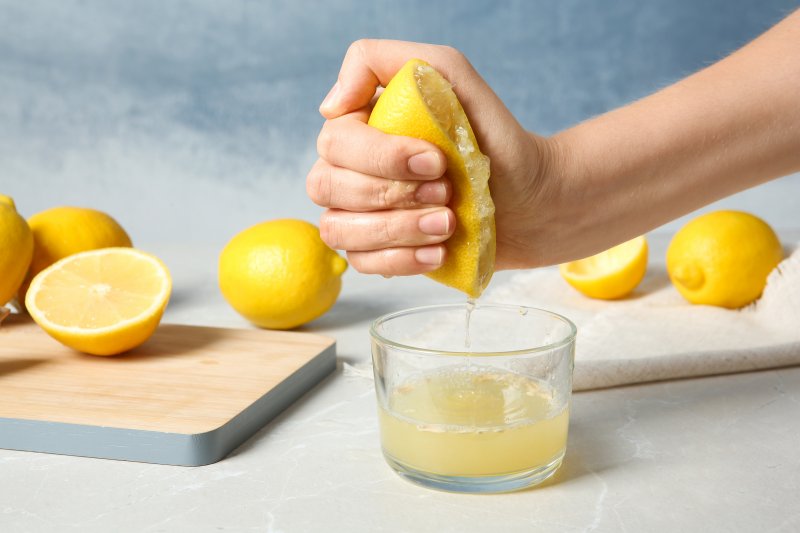The Dangers of DIY Teeth Whitening
June 22, 2021

No one wants to have a mouthful of discolored teeth. However, staining naturally occurs over time due to a variety of different reasons, including tobacco products, drinking pigmented beverages, and aging. You see all sorts of different hacks going around online to “help” you whiten your teeth, but the truth is that they can be more harmful than effective. Continue reading to learn about the dangers of DIY whitening as well as a safer solution.
Charcoal Toothpaste
One of the most common trends that has been out there for quite a few years is the use of activated charcoal to whiten teeth. The idea is that charcoal draws out some of the impurities and surface stains and leave your smile whiter. There may be some truth behind this hack, but products containing activated charcoal tends to be too abrasive for the teeth. Dentists haven’t determined that this hack is safe for teeth, so it is best to avoid.
Baking Soda Toothpaste
On the shelves of your local grocery store, you have probably seen toothpastes that contain baking soda. You can even find recipes to make your own at home. While this is a natural way to whiten teeth, baking soda is mildly abrasive. If you use it on the surface of your teeth on a regular basis, your enamel will become weaker over time. Instead, it is a good idea to pick a toothpaste that is free of bicarbonate soda.
Over-the-Counter Whitening Kits
When you go to the supermarket, you probably see multiple shelves of teeth whitening products, but there’s a reason why the American Dental Association (ADA) hasn’t approved any of these products. With professional whitening, a consultation is completed beforehand to make sure that your smile is healthy enough to go forward with the treatment. Using whitening products when you have a cavity, crack, or damaged filling can lead to extreme pain and become much worse.
Lemon Juice Whitening
Many DIY whitening trends use lemon juice. This is a natural ingredient, but it isn’t necessarily good for your teeth either. Lemon juice is very acidic, so you are basically just applying acid to the front surface of your teeth. Eventually, the top layer of your enamel can be worn away, making it much more probable that you will develop tooth decay and sensitivity.
How Should You Whiten Your Smile Instead?
Instead of using the risky “hacks” listed above, ask your dentist about professional whitening kits. They can provide you with a professional-grade at-home whitening treatment. During this treatment, you will use a whitening tray each day. After about two weeks, you will see noticeable results. This way, you can whiten your teeth safely on your own schedule!
Don’t risk your smile with a DIY trend that you see online. Instead, ask your dentist about a safe alternative. You will be showing off your pearly whites with pride in no time!
About the Author
Dr. James M. Peery, Jr is an experienced dentist who has been practicing for over four decades. He earned his Doctor of Dental Surgery from the Medical College of Virginia and is a former President of the Lynchburg Dental Society. Currently, he is a proud member of the American Dental Society and the local Rotary Club. For more information on teeth whitening or to schedule an appointment at his office in Lynchburg, visit his website or call (434) 847-5331.
No Comments
No comments yet.
RSS feed for comments on this post.
Sorry, the comment form is closed at this time.
